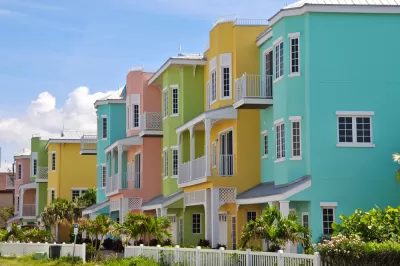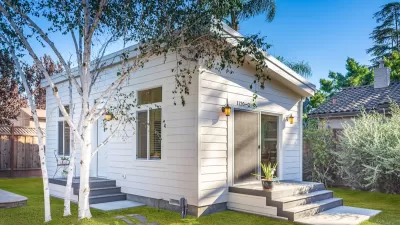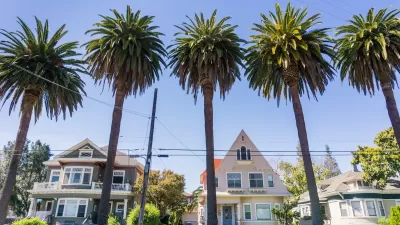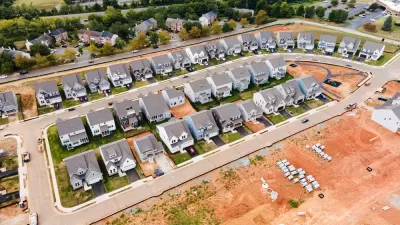An overlooked but important part of American housing stock, many condominium complexes are facing the consequences of decades of deferred maintenance as their buildings and infrastructure reach a critical age.

Carolyn Gallaher assesses the 'mid-life crisis' faced by America's condos, defined by Gallaher as "private residences within a larger property or complex" in which "[r]esidents co-own [shared] elements so they are jointly responsible for their maintenance, repair, and/or replacement."
As many of these units age, they require maintenance that has long been deferred, complicated in part by two important trends. "The first is collective action problems. The second is the financialization of housing."
Problems created by the real estate crash of the 2000s, such as residents' inability to pay fees, foreclosures, and slowing condo sales, continue to have ripple effects today. "In 2016, the Washington Post reported on area condominiums still facing financial difficulties because their reserves had been depleted during the recession."
However, "there are things municipal and state governments can do to prevent condos from falling into disrepair in the first place. Right now, the FHA already requires condominium complexes eligible for FHA mortgages to meet reserve requirements. State and localities could provide incentives for properties to come up to FHA standards." States can also "standardize rules for how complexes within their borders report budget information to prospective buyers. Doing so would make it easier for buyers to compare across properties, and would encourage all properties to meet baseline requirements."
Protecting condos is important, writes Gallaher, because they are "an important part of the American housing stock. They are often more affordable than single-family homes and better suited to people who don’t need or can’t maintain larger homes," contributing to an equitable housing market.
FULL STORY: Are America’s condos having a midlife crisis?

Alabama: Trump Terminates Settlements for Black Communities Harmed By Raw Sewage
Trump deemed the landmark civil rights agreement “illegal DEI and environmental justice policy.”

Study: Maui’s Plan to Convert Vacation Rentals to Long-Term Housing Could Cause Nearly $1 Billion Economic Loss
The plan would reduce visitor accommodation by 25% resulting in 1,900 jobs lost.

Planetizen Federal Action Tracker
A weekly monitor of how Trump’s orders and actions are impacting planners and planning in America.

Wind Energy on the Rise Despite Federal Policy Reversal
The Trump administration is revoking federal support for renewable energy, but demand for new projects continues unabated.

Passengers Flock to Caltrain After Electrification
The new electric trains are running faster and more reliably, leading to strong ridership growth on the Bay Area rail system.

Texas Churches Rally Behind ‘Yes in God’s Back Yard’ Legislation
Religious leaders want the state to reduce zoning regulations to streamline leasing church-owned land to housing developers.
Urban Design for Planners 1: Software Tools
This six-course series explores essential urban design concepts using open source software and equips planners with the tools they need to participate fully in the urban design process.
Planning for Universal Design
Learn the tools for implementing Universal Design in planning regulations.
Caltrans
Smith Gee Studio
Institute for Housing and Urban Development Studies (IHS)
City of Grandview
Harvard GSD Executive Education
Toledo-Lucas County Plan Commissions
Salt Lake City
NYU Wagner Graduate School of Public Service





























